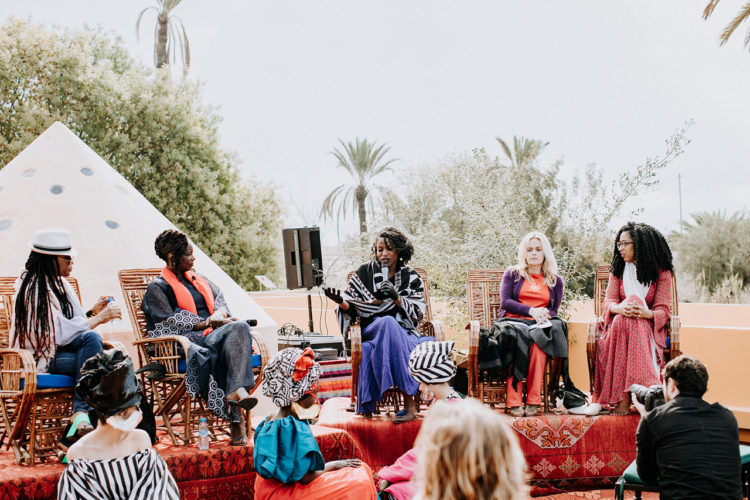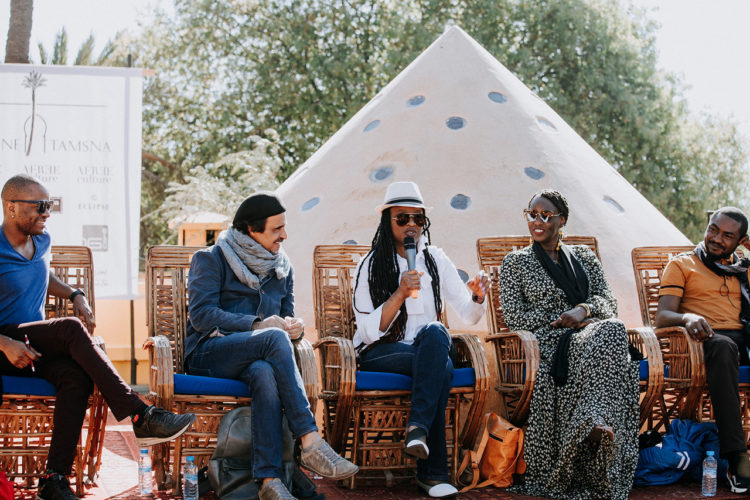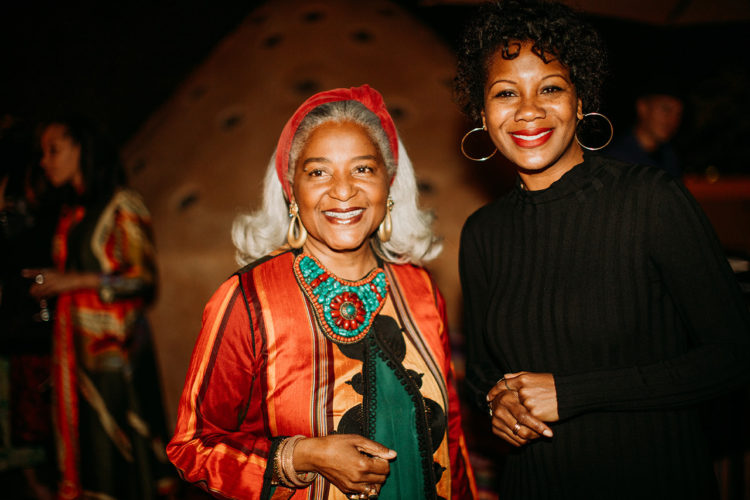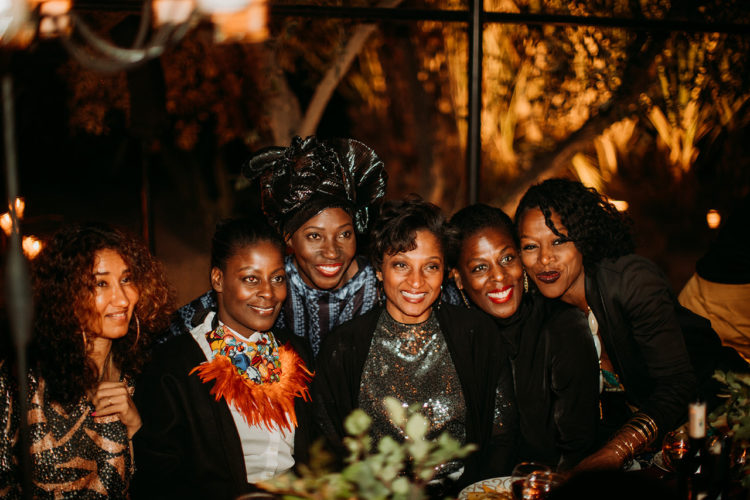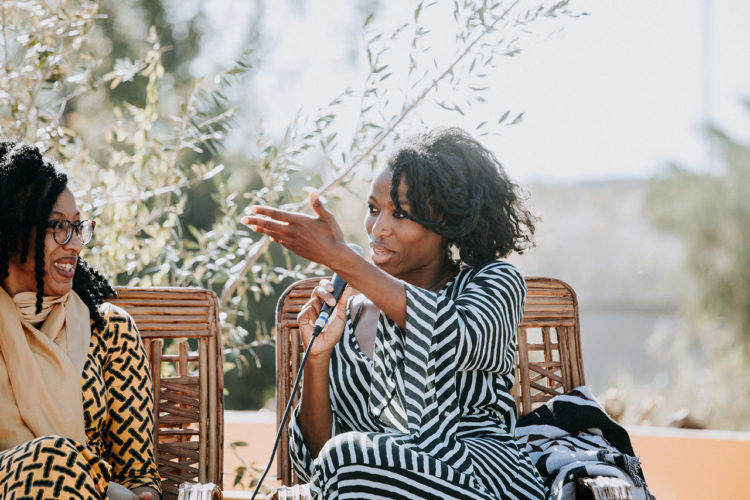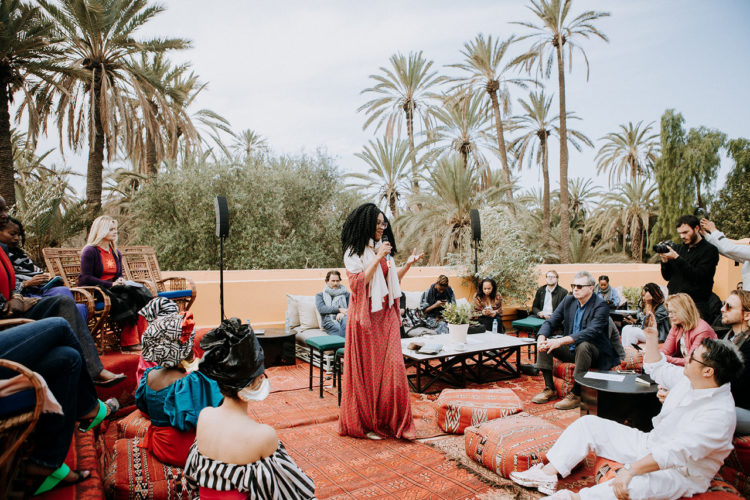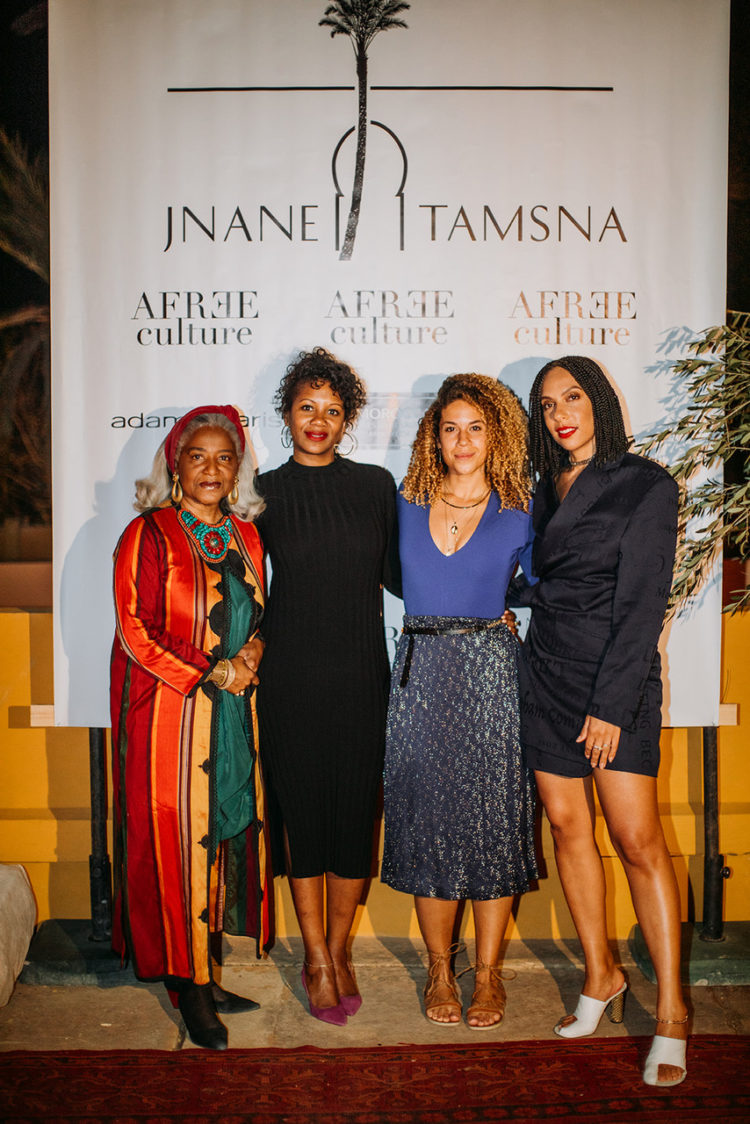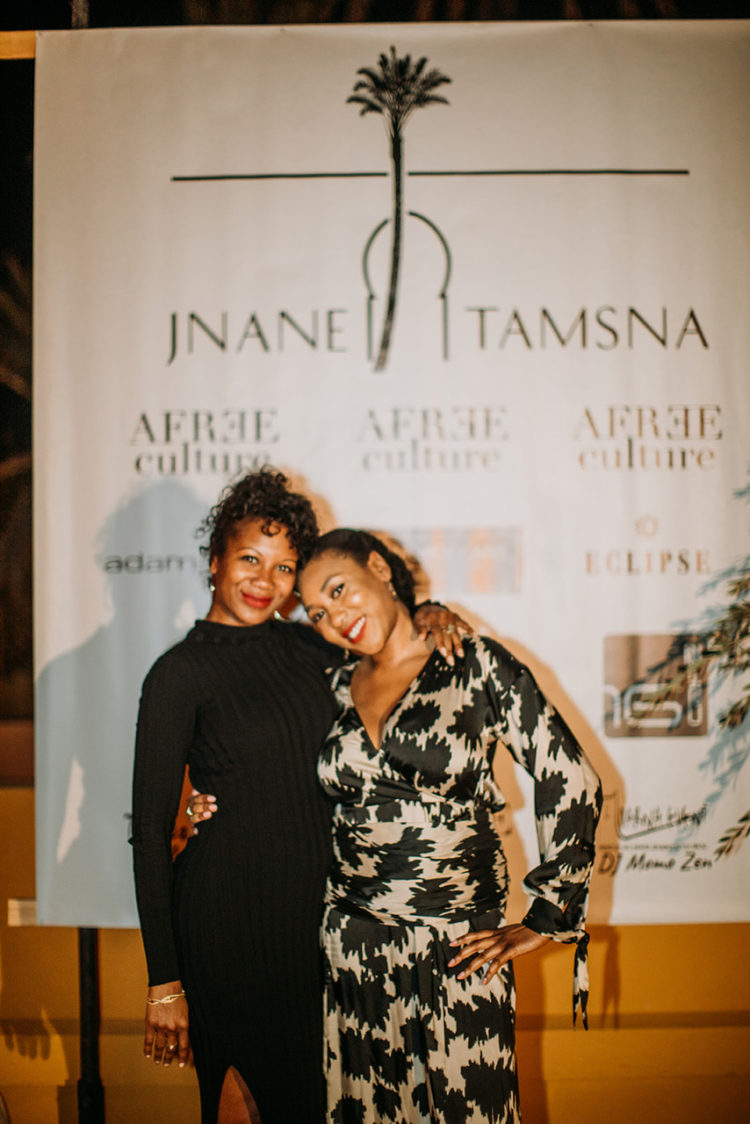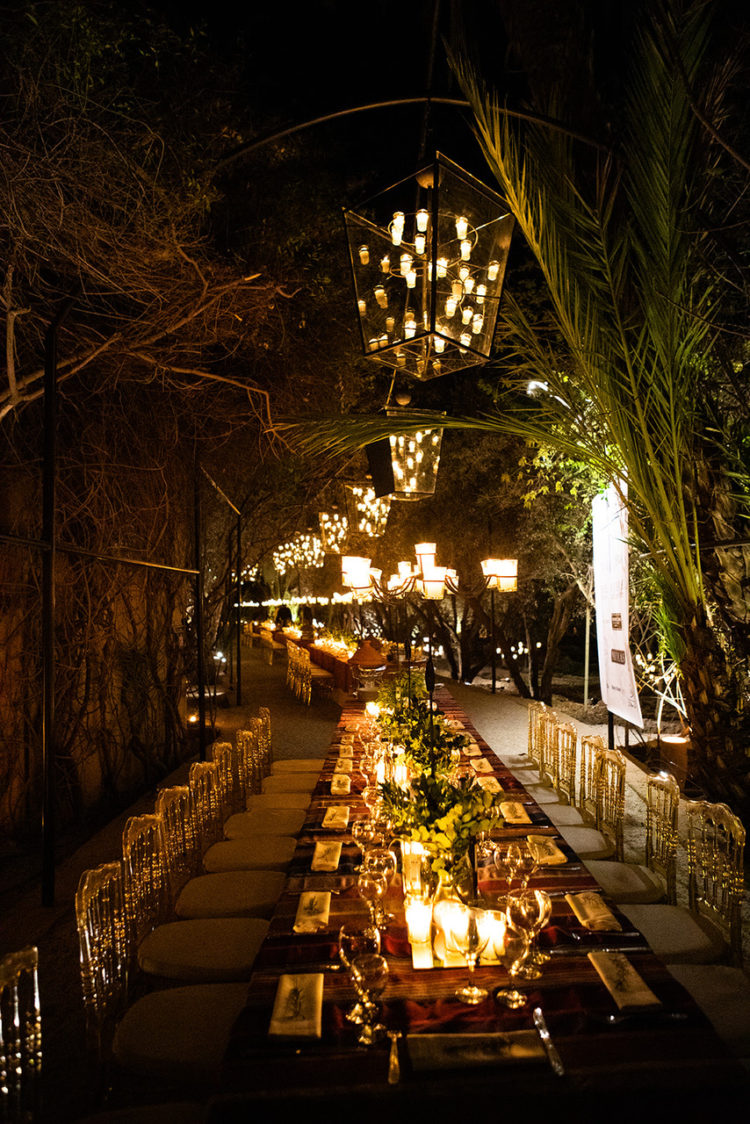In February 2019, I wrote this article about the launch of a new movement centered around the creative expressions of Africans and Afro-descendants. I remember being drawn to the informal nature of the set-up, because the movement, named Afreeculture by its founders, didn’t claim any sort of moral high ground. Being based in Morocco, the movement didn’t attempt to define Africa within or outside of the confines of “blackness,” or of the African continent. Nor did the movement have a business plan, a clear manifesto, or even any real marketing plan that might be meant to facilitate wider dissemination of the ideas it was meant to stand for. What the movement did have was a brand new Instagram page, lots of positive energy, the best kind of word of mouth whisperings, and a lot of goodwill coming from some of the most accomplished writers, artists and journalists working in Africa and the African diaspora. The movement also had a space for its convenings, a specific location in the form of a boutique hotel in Marrakech’s Palmeraie district. Jnane Tamsna, the hotel setting where the movement was born and where most of its future events will be held, sits within a haven of free-thinking eco-friendliness. The nine acres of biodiversity, where the wanderer might just catch a glimpse of cabbage head agave planted alongside an alleyway, are the work of Dr Gary Martin, an American ethnobotanist who is best known as the founder of the Global Diversity Foundation.
Afreeculture, the movement, was launched by Dr Martin’s wife, Meryanne Loum-Martin, a Senegalese-Caribbean lawyer-turned-hotelier who inaugurated Jnane Tamsna with her husband in 2001, and Mashariki Williamson, a Jamaican New Yorker who worked as a publicist before venturing into cultural entrepreneurship. With seed funding from a few philanthropists, including the Ghanaian businesswoman Roberta Annan, Afreeculture is loosely structured, programmatically, around a series of salons, which are meant to (eventually) bring awareness to a new cultural platform celebrating the talent, diversity and global influence of Africans creating ground-breaking work all over the world. Here, the term “African” is defined very broadly, because it also includes many African-Americans, and even Europeans and white Americans who happen to care deeply about African culture. In February 2019, Loum-Martin and Williamson chose to host a four-day, open-air working retreat among the gardens of Jnane Tamsna. Strategically, they timed the retreat to coincide with Touria El Glaoui’s 1-54 Contemporary African Art Fair, which is held every year in February, in downtown Marrakech, at La Mamounia Hotel.
This year’s inaugural events, which took place from February 19th to 23rd, consisted of film screenings, readings and panel discussions celebrating what the founders call “African creativity.” The Los Angeles based director Melina Matsoukas screened her critically-acclaimed 2019 love-on-the-run movie Queen & Slim, which was written by Lena Waithe, from a story by James Frey and Waithe. Democratic Republic of Congo based Renaud Barret showed Système K, his follow-up to Benda Bilili!, which is meant as a deep dive into Kinshasa’s vibrant street art and performance scene. Both screenings and post-screening (afternoon) discussions took place at the École Supérieure des Arts Visuels de Marrakech, in the university district. The open-air (morning) literary salons were hosted on a sunny Jnane Tamsna rooftop by the writers Taiye Selasi, Enuma Okoro and Violaine Binet. At the February 2019 retreat, Taiye Selasi, the Nigerian-Ghanaian-British-American author best known for her novel Ghana Must Go, had stated that the literary salons should be a highlight of the Afreeculture gatherings, because they should feel true to the spirit of the salons hosted by the editor Charles S. Johnson, who brought together some of the most important writers of the Harlem Renaissance, under the auspices of his monthly magazine, Opportunity, which was launched close to a century ago, in 1923.
A year after Selasi’s declaration, the spirit of learning and curiosity was extended to a literary exploration of four specific themes, namely home, love, ghost and language. The African authors on stage, which included Chika Unigwe, Yvonne Adhiambo Owuor, Max Lobe, José Eduardo Agualusa, and Abubakar Adam Ibrahim, drew on myths and symbols, on traditions and vernaculars, as well as on ancient and future realities from their literal and imaginary homelands, in Nigeria, Kenya, Cameroon, Angola, Kenya, France, Great Britain, Belgium, America and elsewhere. The Nigerian-American writer Enuma Okoro set the tone for the conversation around the idea of home and belonging. “There’s this peculiar existence for people living on a bridge between the diaspora and ancestral home. There’s sort of a new language forming from this location of us bridge-dwellers, one shaped by our experiences of home and (dis)belonging.” In a sense, as salon participants were asked by Okoro to turn to their neighbors and share the memory of the first story that gave them a sense of their place in the world, the nomadic lifestyle which was imposed (or self-imposed) on so many Africans could be traced to the tensions and contradictions between movement and belonging, between feeling safe and feeling at home.
Because our African stories fill the range of the human experience, the general feeling was that we own those stories. We own them, because those stories shape us, depending on who’s telling the story and depending on the story one chooses to believe. Selasi launched a Jeopardy type challenge, when she recited the line “you can’t make homes out of human beings someone should have already told you that,” and immediately a salon participant recognized the words of the Somali-British poet Warsan Shire. Chika Unigwe said home is not where you are born, but a place where all your attempts to escape fail. “I was born in Nigeria,” she added, “ but I haven’t lived in Nigeria in a long time, yet Nigeria is the one place where, when I land, I feel like I’m home.” She said she travels on a Belgian passport, and that she has lived in the US since 1995, but that as we relocate and dislocate, we can still claim a specific place as home. Familiarity and rootedness have a lot to do with it, she added, and it’s that jealous rootedness that nothing else can displace.
Selasi said she was a citizen of the departure lounge, and that it was important to develop a relationship with a place where one has spent some time. As a descendant of nomads—she is a Kenyan Luo—who is familiar with the notion of pilgrimage, Yvonne Adhiambo Owuor feels that, no matter how profoundly we claim a place as ours, we define ourselves as “in-betweeners.” Nairobi is, to her, such a place. A place that feels like it’s in between places. Selasi reminded us that one of the horrific elements of the imperial project is that imperialists will always feel immediately at home, and Owuor, who is known for her Caine Prize winning story “Weight of Whispers” responded that it is “the corruption of the quest for home, of the idea of home and belonging, which undermines the collective human quest for a place to belong.” In her mind, the lack of “at-homeness” becomes a relentless search, although Unigwe admitted that she can also feel at home somewhere without feeling an affinity with that place. Violaine Binet asked if home was actually just a metaphor for a way to live in the world, and also for a way to live in oneself.
With Trump’s controversial travel ban in effect, and Nigeria now on the list of countries targeted by this most recent curb on immigration to the US, the question of visas was debated. With Africans having to prove that they have the money to visit countries on other continents, the authors questioned the power dynamics where a young, penniless American with a backpack can just pack up and visit Nigeria without any questions asked, while hard-working Nigerians are denied access to the United States. It’s also the contrast between Westerners moving to the “Global South” and never being asked any questions before they get to their little “expat” communities, whereas Africans get labeled “immigrants” everywhere they go. Semantics matter, and the fluidity with which certain people can move—or move around—can lead to double standards. If an African “immigrant” doesn’t accept certain things about their new so-called home, then their patriotism, their deserving to be in this new home is immediately questioned. Selasi noted the stratification in our modern societies, where Westerners in Africa are called “expats,” whereas black and brown people in Western countries are called “immigrants” and working class (or “declassed”) black and brown people in those countries are called “migrants.”
What, then, is belonging? The answer might come with the examination of the extent to which an African belongs to himself or to herself. If one was raised, say, Nigerian-Ghanaian outside of Nigeria or Ghana, then it was most likely important to be well-mannered, acceptable, and… beloved. Still, Unigwe pointed to the fact that certain people have a level of privilege that allows them to live in a world where boundaries don’t exist, and some people (particularly among the younger generations) are just not burdened by any sense of responsibility to any one nation. These are the mindsets I’ve called “transcultural” in my writings for the past two decades. Meryanne Loum Martin said that, when people ask her son where he is from, he always replies, “How much time do you have?” Mashariki Williamson, reflected on her own experience as a native New Yorker, and the part-time home she has created for herself in Morocco. She concluded that “home is that place where the spirit aligns with the vibration.”
On the theme of language, Unigwe got the conversation going when she said that English is her “stepmother tongue” while Nigerian English is her “mother tongue.” As an author who writes in both English and Dutch, she said that, sometimes, the language in which she thinks is not the language in which she writes. Quoting her fellow Ibgo writer Chinua Achebe and his famous statement “Let no one be fooled by the fact that we may write in English, for we intend to do unheard of things with it,” she said much of her work was actually Igbo written in English. The fact that the Oxford English Dictionary recently added some 29 Nigerian English words and phrases—words like “Kannywood”—to its latest edition helps to decode the language of “in-betweeners.” “If I say ‘I had swallow for lunch’,” she said, “I actually mean “I had fufu for lunch’. Also, in Nigeria, if I say ‘I’m coming,’ it doesn’t mean I’m coming now. It actually means ‘I need another 20 minutes.’” Selasi added that, in Yoruba English, “Please help me move this table” can actually mean, “Please move this table for me.”
Owuor spoke about growing up Kenyan, and having to navigate three mother tongues, in her case English, Kiswahili and Luo. “I assumed the whole world was like that. So I’m a bit of a pimp about language. In my case, if a story emerges in Wolof, then I will immerse myself in Wolof. I’ll do that as much as possible, even though I write in ‘Kenglish’.” Her last novel, Dragonfly Sea, has seven languages in it. “Even with words I don’t understand, I hope that the alchemy of magic will reveal something about human beings.” Abubakar Adam Ibrahim, on other other hand, defines language as defiance. Language, to him, is experience. He referred to James Baldwin, who wrote, in the essay “Why I Stopped Hating Shakespeare” (published in The Cross of Redemption), that “it is experience which shapes a language; and it is language which controls an experience.”
José Eduardo Agualusa, the Mozambique based Angolan journalist and writer who is also of Portuguese and Brazilian descent, reminded the audience that Brazilian Portuguese is now more accepted as the international standard than Portuguese Portuguese. He said that many Portuguese words—words like “manioc” (“cassava” in English or “mandioca” in Portuguese)—were originally African words, but that many Portuguese didn’t know that. Parallels were drawn with “the colonization of the English language,” where we won’t need anyone to open the door. We Africans have already barged in. Selasi said there’s never been a consensus around what is an original language. “What matters is that the characters in our novels will outlive us by a lot.” Max Lobe, a Cameroonian who moved to Switzerland at age 18, spoke about his novel Loin de Douala, and insisted that he didn’t want to explain why he uses this language rather than another. He said he was well aware of the fact that the people who read his books are mostly white Western people and European African people, not necessarily people living in Africa.
“I want to share stories from my childhood about stealing mangoes and throwing stones on the roof, but that may not be so relevant to the white mommies who read my books. In the French language, readers are very gendered. It’s mostly women reading our books, and those women are mosty in their 40s and 50s. When I write, I want it to be accessible to all my readers. A storyteller cannot avoid his or her readers.” Lobe added that, often, he is not satisfied with the definition he finds in the dictionary. Unigwe closed that loop on dictionary definitions when she revealed that “ndo” was her favorite word. She loves that word because it captures the Igbo spirit. “The word ‘ndo’ is usually translated into English as ‘sorry’ but in Igbo it actually means ‘I feel with you.’ That one word actually captures the communality, the spirit of the Igbo people.”
